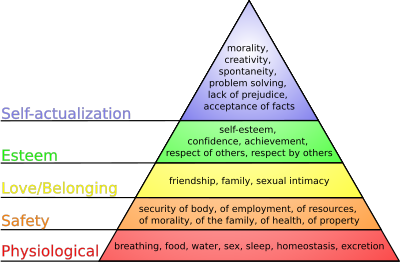I was thinking about the nature of theodicy and how it seems all traditions on some level -- if they begin with the assumption that the nature of things or the best way for things to be is a progression toward a greater good either for the individual or for society -- become bound to the application of a metaphysic.
On Shabbos the rabbi at my shul gave a drash on the parsha in which he dealt with traditional Jewish conceptualizations surrounding the question of evil and suffering, and how today those ideas have been so challenged. It was quite nice to hear him say that he didn't have an answer for how that should be addressed today, and encouraged that each member of the congregation would have to wrestle with that issue. It got me thinking though, and I think conversations following that got me thinking more, about how traditions seem to require a metaphysic if they want to make sense of that.
There seem to be a few basic ways of dealing with the issue and they all seem very similar at their root. People who are good (however the religion defines that) have some type of reward coming to them. People who are not good (based on the religion's definition) will suffer. There are a lot of variations on this theme and there are a lot of important nuances that each religion seems to take in dealing with the issue such that it can take on an entirely different flavor or meaning. In some religions the focus is on the reward and punishment. In others it's on the development of the individual. And within individual religions there are frequently multiple takes on the issue.
So my question then, is there a way to deal with theodicy (under the assumption that either the individual or humanity is/should be progressing or ought to pursue what is good/right) that can avoid proposing something happening that is outside of the natural world and its processes?
My own take on theodicy, as is my general take on belief, is that it's something which can be applied as a tool. There are times where, as a tool, I find it helpful to understand things that happen in my life in terms of a particular take on why bad things happen to good people. But if I get a wider perspective of what's happening that takes in more people, I can't apply it. I guess in a way it's maybe like how quantum physics is harder to observe as things get bigger. But I don't really think it's like that at the same time, because I think it would require something "other than" in order to validate itself. I'm really more interested in the subjective filtering and interpretation of reality than in the way things really are so it's not much of a problem for me, but I'm still curious about theodicy without metaphysic.
-- Dauer
On Shabbos the rabbi at my shul gave a drash on the parsha in which he dealt with traditional Jewish conceptualizations surrounding the question of evil and suffering, and how today those ideas have been so challenged. It was quite nice to hear him say that he didn't have an answer for how that should be addressed today, and encouraged that each member of the congregation would have to wrestle with that issue. It got me thinking though, and I think conversations following that got me thinking more, about how traditions seem to require a metaphysic if they want to make sense of that.
There seem to be a few basic ways of dealing with the issue and they all seem very similar at their root. People who are good (however the religion defines that) have some type of reward coming to them. People who are not good (based on the religion's definition) will suffer. There are a lot of variations on this theme and there are a lot of important nuances that each religion seems to take in dealing with the issue such that it can take on an entirely different flavor or meaning. In some religions the focus is on the reward and punishment. In others it's on the development of the individual. And within individual religions there are frequently multiple takes on the issue.
So my question then, is there a way to deal with theodicy (under the assumption that either the individual or humanity is/should be progressing or ought to pursue what is good/right) that can avoid proposing something happening that is outside of the natural world and its processes?
My own take on theodicy, as is my general take on belief, is that it's something which can be applied as a tool. There are times where, as a tool, I find it helpful to understand things that happen in my life in terms of a particular take on why bad things happen to good people. But if I get a wider perspective of what's happening that takes in more people, I can't apply it. I guess in a way it's maybe like how quantum physics is harder to observe as things get bigger. But I don't really think it's like that at the same time, because I think it would require something "other than" in order to validate itself. I'm really more interested in the subjective filtering and interpretation of reality than in the way things really are so it's not much of a problem for me, but I'm still curious about theodicy without metaphysic.
-- Dauer

